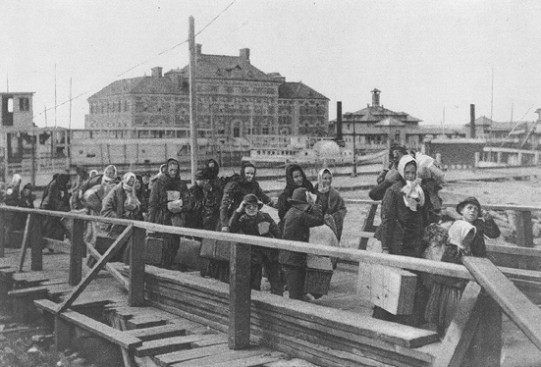In our Spring Issue this year, we ran a special feature covering literature from countries affected by President Trump’s infamous “Muslim Ban.” This was in recognition that literature is reflective of political conditions and that it is a powerful form of protest against oppression. In today’s piece, Fiona Le Brun looks at the manifesto against the Muslim Ban penned by Patrick Chamoiseau, a Prix Goncourt recipient and notable figure in Créolité literature. As France emerges from a divisive election against the backdrop of the unprecedented European refugee crisis, reading Chamoiseau reminds us that literature enables us to conceptualize cultural openness.
This February, Martiniquais author Patrick Chamoiseau, whose previous works include the Goncourt-winning novel Texaco (1992. Translated into English by Rose-Myriam Réjouis and Val Vinokurov in 1997), launched a call for solidarity with migrants of the world. Not only was this call a reaction to President Trump’s executive order blocking citizens of six predominantly Muslim countries from entering the United States, but also a reaction against Europe’s palpable fear revealed by Brexit and the several manifestations of the rejection of migrants.
A couple of months later in May 2017—between the two rounds of the closely watched French presidential election—his essay Frères migrants: Contre la barbarie (Migrant Brothers: Against Barbarism) was released. This invitation to resist intolerance, racism, and indifference is concluded by his manifesto, Les Poètes déclarent (Declaration of Poets).
Today Chamoiseau’s manifesto is more relevant than ever, for both the United States and France. While the French are rejoicing in the victory of the youthful, moderate and well-read Emmanuel Macron over the far-right candidate, Marine Le Pen, the latter still gathered over 10 million votes, mostly motivated by immigration topics. This temporary relief must not have us overlook the fact that France, whose leaders never miss an opportunity to cast the country as the nation of human rights, has welcomed only a little over 25,000 refugees last year, far less than Germany or Sweden over the same period of time. The results of this election sure bring a glimmer of hope, as the winning candidate seems interested in real change and wants to work hand in hand with fellow EU countries. He also appears to be ready to wipe the dust off our old colonial shelves: back in February, while on a trip to Algeria, Macron called France’s colonial past a “crime against humanity,” and stood firm in the face of attacks by right-wingers. But his task remains difficult. He still has to convince millions of French citizens to support his agenda. The upcoming parliamentary elections will be decisive for Macron’s mandate in a very divided country, as well as for the uncertain future of the EU.




